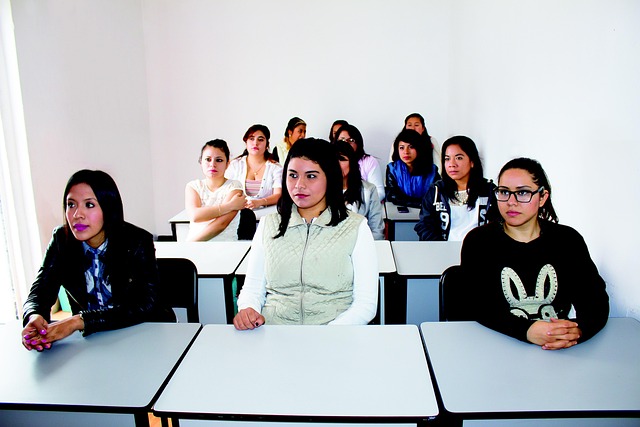Following the unsuccessful attempt in 2024 to pass modifications through the ESOS Amendment Bill, Australian Education Minister Jason Clare has reintroduced legislation aimed at enhancing the integrity and accountability of the country’s international education sector.
The reintroduced bill closely corresponds to the version proposed last year but notably excludes the earlier plan to impose a cap on international student enrollments, which had contributed to the bill’s failure to pass through Parliament. Clare emphasised that the new legislation is designed to provide authorities with more effective tools to combat unscrupulous practices within the sector. He stated, “This legislation gives us more tools to stop unscrupulous individuals in the international education system trying to make a quick buck,” underscoring the government’s commitment to safeguarding the sector’s reputation.
Table of Contents
Why Are Australia’s 2025 Education Reforms Being Reintroduced?
At its core, Australia’s 2025 Education Reforms are about restoring balance between growth and quality within international education. Over the past decade, Australia has become one of the world’s top destinations for international students, but rapid expansion has also exposed vulnerabilities in regulation and accountability.
The government asserts that the proposed changes will strengthen regulations against fraudulent and unethical practices. Key among these is granting authorities the power to limit or revoke an education provider’s license to deliver courses if doing so is in the national interest or if systemic quality issues are identified.
This measure aims to clamp down on providers that cut corners or operate with malpractice, ensuring students and the sector’s credibility are protected. It also aligns with broader Australian education policy changes that emphasise transparency, accountability, and sustainability in Australian education.
How Does Australia’s 2025 Education Reforms Strengthen Integrity in the Education Sector?
One of the core themes of Australia’s 2025 Education Reforms is integrity. The reforms introduce stronger mechanisms to prevent exploitation, protect students, and ensure education providers uphold ethical standards.
A significant provision focuses on prohibiting commissions paid to education agents for facilitating onshore student transfers. This move, though debated, is viewed as essential for building trust. Supporters argue that it will reduce conflicts of interest and unethical recruiting practices. The ban is intended to promote transparency and fairness in how international students are recruited, aligning with the evolving education strategy in Australia that prioritises student welfare and sustainable growth.
Clare and his department have made it clear that the aim is not to hinder the sector’s success but to future-proof it. The new bill redefines what it means to maintain integrity in an increasingly competitive global education market.
Read Also: How Australian Immigration is Changing in 2025: What Migrants Need to Know
What Makes Quality Assurance a Priority in Australia’s 2025 Education Reforms?
Another significant aspect of Australia’s 2025 Education Reforms is the introduction of a requirement that prospective education providers demonstrate a commitment to quality by first delivering courses to domestic students for at least two years before applying to teach overseas students.
This policy, which fits into the broader Australian education policy outcomes, acts as a quality checkpoint. By proving their reliability with local students first, institutions show they can deliver consistent academic and welfare standards.
This step is especially vital for smaller institutions that seek international recognition but must first establish credibility within the domestic landscape. It reflects a push toward sustainability in Australian education, ensuring providers grow steadily, not simply rapidly.

How Does Australia’s 2025 Education Reforms Tackle Unethical Practices?
The legislation also targets ‘phoenixing’ activities, when educational providers close or rebrand to avoid debts or regulatory penalties. This issue has long undermined trust in the sector. If the bill is enacted, providers that go without delivering courses to international students for a period of 12 months could have their registration cancelled.
By enforcing this, Australia’s 2025 Education Reforms send a clear message that accountability cannot be avoided through rebranding or loopholes. It strengthens the education strategy in Australia by prioritising long-term credibility over short-term gains. Such measures protect both students and reputable institutions that play by the rules, ensuring that Australia’s education reputation remains globally competitive and ethically grounded.
What Role Does TEQSA Play in Australia’s 2025 Education Reform?
Furthermore, the legislation proposes that offshore delivery of Australian degrees by education providers will now require approval from TEQSA, the Tertiary Education Quality and Standards Agency. This is a significant move toward ensuring that sustainability in Australian education extends beyond borders. It guarantees that students studying Australian courses abroad receive the same academic quality and integrity as those studying within Australia.
This is particularly important as global demand for Australian degrees continues to grow. TEQSA’s expanded oversight reinforces the principle that “Australian quality” should be consistent, no matter where students are located.
How Does Australia’s 2025 Education Reforms Protect International Students?
Minister Clare highlighted the importance of maintaining Australia’s global standing by prioritising quality, transparency, and a positive student experience. These values form the backbone of the education strategy in Australia, which now places a stronger emphasis on student welfare and institutional ethics.
In a statement, the government underscored that these reforms are essential to combat exploitation and ensure the sector’s integrity. Julian Hill, the Assistant Minister for International Education, echoed this sentiment, stating, “Australia’s future success requires a focus on quality, integrity, and a great student experience.”
Hill also pointed out that the new amendments are designed to bolster efforts against exploitation and improve transparency, especially after previous reforms faced blockage in the Senate by the Liberal and Greens parties.
Through these measures, Australia’s 2025 Education Reforms aim to position Australia not just as a leading destination for education but as a safe, fair, and reliable environment for international students.
Read Also: Refugees in the UK Face Longer Waits for Settlement
How Does the Reform Affect Student Enrollment Caps?
Although the earlier bill that would have introduced mandatory enrollment caps was blocked last year, the government responded by implementing Ministerial Direction 111. This directive instructs departmental officials to prioritise visa processing for international students until providers reach 80% of their designated cap, known as the Net Overseas Student Commencement (NOSC) number.
The government has set the total NOSC at 295,000 for 2026, an increase from 270,000 in 2025. While this figure has served more as a planning target rather than an enforceable limit, the government has indicated that future enrollment targets will be more stringently managed.
The Australian Tertiary Education Committee (ATEC), currently operating in an interim capacity, will work closely with individual universities to ensure they meet, but do not surpass, their student intake quotas for 2027.
This approach reflects the broader Australian education policy outcomes, which focus on balance, maintaining growth in international education while preventing overstretching of resources.

What Does This Mean for the Future of the Australian Education Sector?
Overall, the reintroduction of these legislative measures reflects the government’s ongoing efforts to bolster the quality, transparency, and integrity of Australia’s international education sector. With Australia’s 2025 Education Reforms, authorities aim to safeguard the country’s reputation as a global leader in education, protect international students, and promote sustainable growth within the sector.
It is not just a reform; it is a recalibration of Australia’s long-term education strategy, one that ensures the country continues to attract students while maintaining its academic and ethical standards. The changes also reinforce sustainability in Australian education, emphasising consistency in policy implementation and accountability for institutions across the board.
Can Australia’s 2025 Education Reform Inspire Global Change?
What makes Australia’s 2025 Education Reforms especially significant is: potential global influence. Many countries face similar issues, from rapid student inflows to inconsistent provider standards and ethical lapses in recruitment. Australia’s approach combines legislative reform with a strong moral stance, showing that education growth does not have to come at the cost of integrity.
If successfully implemented, this could serve as a benchmark for other nations looking to balance economic opportunity with educational credibility. In many ways, the reform reflects a new era of sustainability in Australian education: one that values long-term trust over short-term profit.
A Stronger Future for Australia’s Education System
Australia’s 2025 Education Reforms stand as a pivotal step toward a fairer, more transparent, and globally respected education system. It highlights the government’s recognition that integrity and quality are inseparable from success. By prioritising accountability, student protection, and sustainability, the reforms promise to enhance both Australia’s domestic and international education sectors. This balanced vision blends with evolving Australian education policy changes and sets the tone for how nations can reshape their systems for the future.
FAQs About Australia’s 2025 Education Reform
1. What is the main goal of Australia’s 2025 Education Reform?
The main goal is to strengthen integrity and accountability in Australia’s international education sector by curbing unethical practices, protecting students, and ensuring consistent quality standards across institutions.
2. How does Australia’s 2025 Education Reform improve sustainability in Australian education?
It promotes sustainability by introducing policies that ensure institutions grow responsibly, such as requiring providers to first serve domestic students before expanding internationally and improving TEQSA oversight.
3. What are the major Australian education policy changes in Australia’s 2025 Education Reform?
Key changes include banning commissions for onshore student transfers, granting authorities the power to revoke licenses for poor performance, and enforcing stricter standards for offshore course delivery.
4. Will Australia’s 2025 Education Reform affect international student enrollment numbers?
While the reform removes direct enrollment caps, it implements new oversight mechanisms through the NOSC system, ensuring providers maintain manageable and sustainable student intake levels.
5. How does Australia’s 2025 Education Reform contribute to the overall education strategy in Australia?
It supports the national education strategy by focusing on quality, transparency, and student welfare, making sure Australia remains a trusted and respected global education destination.
6. What impact does Australia’s 2025 Education Reform have on education providers?
Education providers will face more rigorous quality assessments and reporting obligations. However, those committed to ethical practices and sustainable growth will benefit from a stronger and more reputable system.
7. Why is Australia’s 2025 Education Reform important for international students?
International students stand to gain from enhanced protection against exploitation, improved course quality, and more transparent recruitment processes, reinforcing Australia’s reputation as a safe and student-centred destination.

